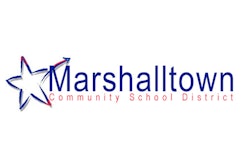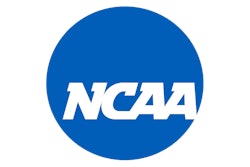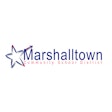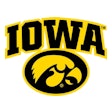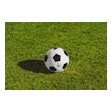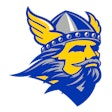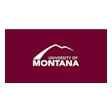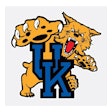Student advisors in two states help shape policy debates
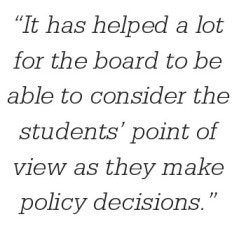
The Minnesota State High School League and Kansas State High School Activities Association were formed in 1916 and 1910, respectively. A proponent of student activism (albeit a cynical one) might note that the MSHSL took all of 76 years and the KSHSAA 87 years to form an advisory body made up of the students they serve. In fact, the two organizations are the country's most proactive. As the KSHSAA's Student Advisory Team (SAT) turns one year old this fall and the MSHSL's Student Advisory Committee (SAC) begins its sixth year, they remain the only two such high school student advisories in the nation.
When KSHSAA Executive Director Gary Musselman established the SAT last summer, he said he was "excited" to begin the initiative. That was nothing compared to young athletes' response - 92 of them applied for the group's 12 slots. This year, 65 applied to fill the advisory group's eight vacancies.
In their first year, the SAT helped create a recognition program, with certificates presented during National Activities Week, for community members who exhibited good sportsmanship or otherwise supported high school activities. After that, the group became involved in producing a survey asking for feedback on potential changes to the KSHSAA's summer coaching rule. The survey drew more than 4,400 responses from student-athletes from all over the state.
"It's been very meaningful," says Musselman. "It has helped a lot for the board to be able to consider the students' point of view as they make policy decisions, or even for us to share that sort of information with our state legislators, to let them know what processes we're using as we consider changes to our rules. We think it's a very good thing."
Musselman and his staff members assigned to shepherd the SAT, David Cherry and Cheryl Gleason, all acknowledge the debt they owe to Skip Peltier, the MSHSL's associate director who spurred the formation of his state's advisory group largely because of his interest in the NCAA's formation of campus-, conference- and finally national-level SACs. Peltier is impassioned about student involvement in creating policy; he says his pitch to the MSHSL board began with the simple question: Who are our clients?
"We've said for a long time, as have many state associations, 'If it's not good for kids, we ought not do it. The only reason we exist is for kids,' " Peltier says. "That's good to say, but in my opinion, until you're willing to ask the kids, you really haven't done what's best for kids. The risk is that when they respond, you have to at least be flexible enough to be willing to carry it all the way through to effect change. If you're not willing to effect change, then don't ask the question, because otherwise you'll look pretty ridiculous."
The SAC has discussed a variety of subjects extensively: eligibility, chemical violations, length of seasons, number of games. They have provided the MSHSL staff with an analysis of its strategic planning, listed what they see as the association's strengths and weaknesses and have suggested improvements. To give a few examples, the students felt the league does a good job of administering programs and bringing a balance to activities, helping to ensure coaches don't try to exert too much control over what kids do in the off-season.
The students have also tried to be specific about the areas where they believe the league comes up short. For instance, while the league disseminates information to schools, parents and athletes through a variety of correspondence and publications, the students told Peltier that nobody reads them, even when the athletes or their parents are required to sign and return forms to the athletic department.
"They told us that when we change our rules, we might know there have been changes but they don't," Peltier says. "So we're looking at ways to make our communications more effective, such as making our Web site more attractive to kids."
It is in the area of rule-making that the students have had more of an impact than anyone had thought possible, particularly for a body with no voting power. During the group's second year, the students began to express concerns about the association's rules forbidding students from working with their coaches out of season - especially during the summer, when certain coaches work in some of the best camps and leagues. Administrators explained the reasons for the restrictions, in particular the possibility of coaches exerting undue influence, but the students, according to Peltier, didn't "totally see the connection." The matter could have been dropped there, but the board decided to conduct area meetings with superintendents, principals and athletic directors. That led to the formation of a 55-member ad hoc committee - which also included parents, coaches and students - that drove 13 different rules changes approved by the board this March.
Those rules changes represent one of the greatest philosophical shifts in the league's history. It can be summed up, Peltier says, in three words: Hands off kids.
"If we can remove all the regulations from the kids, that's what we're looking to do," he says. "We're giving kids the green light to do what they want to do, but we're trying to maintain some reasonable control on coaches so they can't exert that kind of influence."
To hear Peltier tell it, when the league tried to frame its rules in philosophical terms, the student advisors countered with cold realities.
"We used to have a rule that they couldn't receive private lessons during the season," he recalls. "The students said, 'You wouldn't stop a kid from getting a tutor so he could get better in geometry. If my gift is athletics, why can't I do the things I need to do to improve?' Specialization is a big issue for us, but the kids said, 'It sounds good philosophically to say I ought to play more than one activity, but the reality is that by the time I'm out of junior high, if I don't maximize my efforts toward this one sport, I'll never make the high school team.' "
Peltier says the league isn't "100 percent sold" on the students' argument, but the ad hoc committee heard enough rumblings from parents and coaches that the decision was made to give it a try, despite any misgivings that might persist about coaches taking advantage.
"They thought we should be heading in this direction and the board had the flexibility and confidence to talk to the membership about it - although I do think there's a risk in what we're doing," says Peltier. "We're willing to try it and see what happens, but we enter this phase of free-market policy with some trepidation."
Moving toward a free-market philosophy is a reality of the '90s, as more athletes and their parents utilize state legislatures to force activity associations to ease their restrictions. Nobody knows this better than the folks at KSHSAA, who have been under siege by parents in several communities repeatedly over the last several years. (See "Ruled Out," July 1997, p. 24.) KSHSAA staff concede that the SAT is one way the association can convince legislators that the association truly is listening and responding to families' needs.
Says Gleason, "Some legislators think we're just people in suits making decisions and not caring about students, but after we completed the students' survey, Gary [Musselman] was able to go to the legislature and say, 'This is what students across our state think.' I think it really carried some weight."
Similarly, the association is using the SAT to get more adults familiar with the way the KSHSAA goes about its business. Each of the student advisors is accompanied to the Topeka office by his or her faculty representative; as part of the day's sessions, the adult sponsors and students are given separate tours of the facility and meet on their own about issues on the agenda. They then meet later in joint session. Musselman, a former government teacher, sees value in showing as many Kansans as possible the democratic process at work in the KSHSAA office.
As to what direction the students may eventually take, the KSHSAA staff is unsure. In speaking with the various administrators, the impression received is that Kansas will hold the reins on its student advisors tighter than Minnesota has. Asked if any areas will be out of bounds to the SAT, Musselman says, "They're pretty bright young people and very capable, but they clearly understand that they are an advisory body to our executive board. Not everything is something they need to get involved in, some of the minutia of rules and regulations."
Certain issues may well occupy the SAT should the students take on a more activist role. Gleason mentions a current controversy at Caldwell (Kan.) High School, which has recently mandated drug-testing of its student-athletes, and notes that the topic of home-school-student participation is one that the SAT members are sure to have strong feelings about, for and against. Still, Gleason says the association is "trying to decide what to do with them," implying a less self-directed advisory than Minnesota's. "We want to provide an opportunity for students to voice" - she says, but pauses to correct herself - "for schools to have an opportunity to know what students think about activity programs."
"We know it's not where we want to be yet, but with students' input we're trying to get it going," adds Cherry.
To Peltier, it doesn't matter how they're structured or who drives the agenda. Student advisories are simply an idea whose time has come - finally.
"I can't say we're visionary, because even if we're light-years ahead of other states, we're 75 years behind where we should have been," he says. "I just think we're being responsible. An elected official would never think of making decisions without at least talking to constituent groups."














